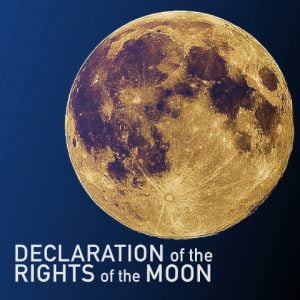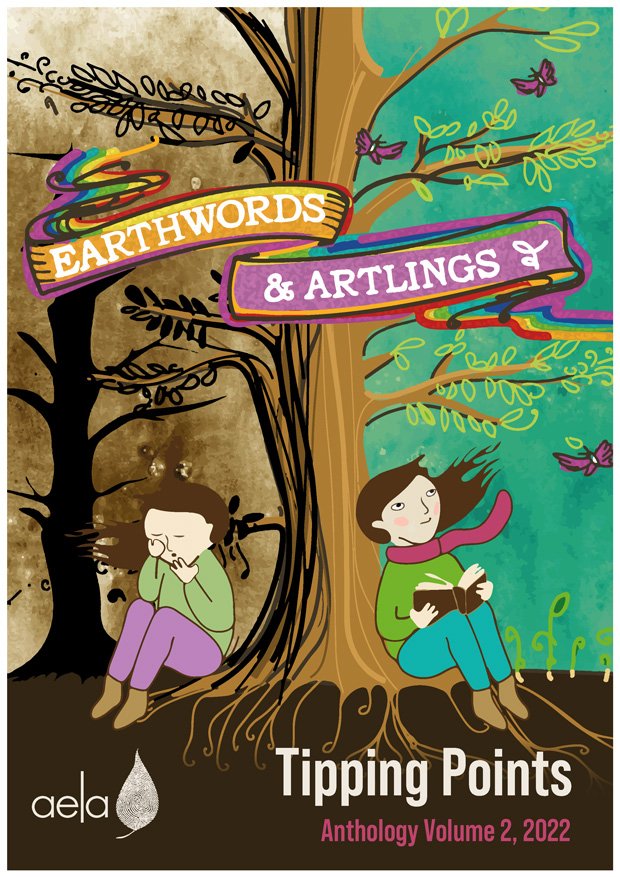Nicolas Blain, editor of the French language site for the Rights of Nature, Droits de la Nature, takes up the Rights of the Great Barrier Reef in his August 23rd blog piece.
Read Nicolas' original article, in French, on the the Droits de la Nature site, or scroll down for an English translation.
The Great Barrier Reef could obtain its own rights
by Nicolas Blain | 23 August 2018
In the face of the inability of environmental laws to protect the critically endangered Great Barrier Reef, the Australian Earth Laws Alliance (AELA) has launched a campaign to recognize this unique ecosystem as a living being with its own legal rights. An unprecedented initiative that is part of the growing global movement of the Rights of Nature and which our site is a partner.
Make the Great Barrier a subject of rights
In Australia, environmental laws have not, in the last decades, managed to stop the damage and threats to the Great Barrier Reef: climate change, coal mining or marine pollution. To date 30% of the Barrier's corals are declared dead. In sum, the current Australian legal framework supports the appropriation of Nature by Man and helps maintain a system based on limitless growth fuelled by unreasonable exploitation of natural resources, says the Australian Earth Laws Alliance (AELA), at the origin of the campaign.
Like a growing number of organisations around the world, AELA believes that ecosystems have an intrinsic right to exist, thrive and evolve. This is why it works to bring out different laws that recognise the intrinsic value of ecosystems and not just because of their usefulness to humans. It is about adopting laws that recognize ecosystems their rights to live, flourish and in particular, not be polluted or destroyed. With this in mind, the newly launched Rights of the Reef campaign adds to the global movement for the Rights of Nature, which since 2008 has seen a growing number of countries such as Ecuador, New Zealand, Colombia, India and the United States, recognize the rights of local ecosystems such as the Amazon, or even to all the natural entities of their territory, as in Ecuador. In this wake, the Australian campaign intends to recognize the Great Barrier Reef, currently considered merely human property, as a subject of rights.
"Right now, the laws that protect the Great Barrier Reef do not prevent large-scale adverse development or climate change impacts. Our bills show that if the Great Barrier Reef had its own rights and communities could enforce them, the communities and citizens involved could bring legal action to stop the unwanted coal mines, stop large scale land clearing and protect and restore the reef,”. Says Michelle Maloney, Ph.D. in Law and National Convenor of AELA. "We believe that laws recognising the rights of nature would be a big step forward, because they would allow more people to use the law to protect nature and would initiate a significant cultural shift in favour of protection rather than destruction of nature. "
New laws and constitutional reform
In practice, the goal of AELA’s campaign is twofold. In the short term, the aim is to publicize the initiative in Australia and around the world through a petition that aims to collect 5-10,000 signatures by the end of October 2018. In the longer term, over the next 2-3 years, the challenge is to carry out advocacy work to promote the adoption of rights of nature laws. These texts are intended for the various stages of the Australian legal system: local, state and federal.
The Alliance also urges local communities and Australian municipalities to seize the subject of the Rights of Nature and pass local laws enshrining both the rights of the Great Barrier Reef (GBR), which would be recognised as a living being with its own legal rights, and that of the population to a healthy environment. In the same spirit, the draft law of the State of Queensland, which the Barrier Reef is adjacent to, also recognizes its rights to naturally exist, thrive, be restored and protected from the climatic disturbances stemming from human activities.
Local and Queensland bills also list a non-exhaustive set of prohibited activities, including extraction and fracking in Australian lands and waters, as well as the construction of new ports in or adjacent to the Barrier Reef. In addition to these two tools, AELA also drafted a amendment to the Australian (national) Constitution. More succinct than the texts of laws, it takes again some fundamental elements such as the recognition of the rights of the Great Barrier .
Any resident can defend the rights of the Great Barrier Reef
At the end of the three draft texts, "the Great Barrier Reef and any ecosystem, natural community and native species that are part of and depend on it can defend the provisions of this law through action brought before any relevant jurisdiction". In other words, the Great Barrier Reef will be able to defend its rights in Australian courts. But how would this be done in practice? The Queensland text states that "any Australian resident may defend or enforce the provision of this Act in any appropriate court".
"Our bills for the GBR are designed to allow anyone in Australia to defend the rights of the reef. This approach is similar to the general rights enunciated in the Ecuadorian Constitution, that is, they are "broad" rights that everyone can apply. They are not limited to a narrowly defined set of "guardians" as is the case for the Whanganui River in New Zealand," says Michelle Maloney. "The legal personhood rights set out in New Zealand law are specific and unique to their circumstances, led by the Maori people in that country. For Australia, we deliberately chose this approach because we wanted to demonstrate how rights of nature laws can help communities and concerned citizens defend the rights of the living world," she adds.
Finally, local and Queensland bills recognize the right of First Nations Peoples (the Aboriginal Peoples of Australia, preceding the colonisation of Australia by the British in 1788) to speak on behalf of their ancestral lands, and to become part of a lawsuit already initiated on the basis of the laws in question.
Our Rights of Nature site is a #RightsoftheReef campaign partner, and is also part of the Global Alliance for the Rights of Nature. For more information, visit the campaign website: https://rightsofnature.org.au/rightsofthereef/
Nicolas Blain (@Nicolas_Blain on Twitter)





















